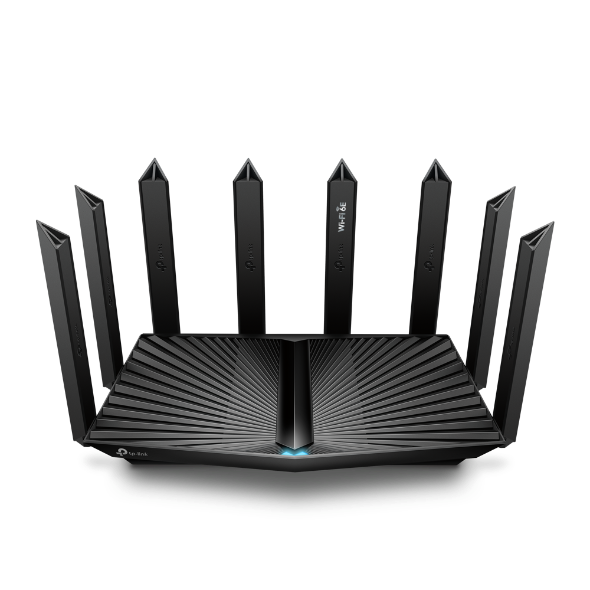How to improve my wireless speed or range
This Article Applies to:
Overview:
To improve the wireless speed or range, it is highly recommended to work on the following common solutions:
Symptom:
Weak wireless signal showed, low wireless speed or range.
Cause:
The factors most frequently affecting the wireless signal:
1) Intrinsic factors:
·Transmission Distance.
Regarding on the wireless device particularly working on 5GHz band, it will be more sensitive to the obstacle. Though there will be more clear channels than those of 2.4GHz bands, the wireless signal will be reduced significantly and transmit in shorter range due to higher frequency.
·Antenna.
Omni-directional antennas and directional antennas
Omni-directional antennas are resembled in our home products like wireless router or wireless ADSL2+ Modem Routers, they radiate horizontally all around, but are weaker upward or downward as the picture shows.
.png)
While a directional antennas radiate strongly in a particular direction which are usually used for high power outdoor products. The gain of a directional antenna increases, also with the coverage distance, but the effective coverage angle decreases. Generally, the higher gain value of an antenna, the better directional ability will be.
.jpg)
For directional antennas, the lobes are pushed in a certain direction and little energy is there on the back side of the antenna. Please refer the picture below.
.jpg)
This phenomenon will be more significant once you deploy the High-Gain antenna, so we recommend that to confirm precise on horizon direction otherwise there be unexpected dramatic signal loss.
.jpg)
·Wireless Communication Performance.
Higher transmission rates, better performance
2) Extrinsic factors:
- Physical Barriers, such as wall or clapboard and so on;
- Other similar devices and other sources such as microwave ovens, cordless phones or other technologies that use the same band as Bluetooth
- There are more than one AP or wireless routers working in the same Channel.
- The location where an AP or wireless router is placed. You'd better to place the device at a higher location to reduce the barrier’s countercheck.
Solution:
1) Antennas should be positioned for best location and direction
- Deploy the antenna in good location and correct angle, and also make sure your wireless client devices are in the coverage;
- For multi-story buildings wireless coverage, we recommend to placing antennas at 45 degrees (diagonally) or 0 degrees (straight out parallel to the floor) which will be more effective. Since antennas always transmit weakly at the base, do not place your wireless client device at the bottom of TP-Link wireless router or access point.
2) Try best to avoid the extrinsic interference
- Avoiding the physical interference in the wireless coverage, each wall or ceiling will have a negative effect on wireless radio particularly the ones built by solid metal material ;
- Keep your device away from various electromagnetic noise sources that generate RF noise, like microwaves, Monitors, electric motors, copying and fax machines, etc.
- For TP-Link wireless products, we recommend to do corresponding settings to avoid the interference from other networking and radio frequency equipment.
First, please log into the product and you can refer to this link as guidance. Here we take TL-WR1043ND user interface as an example and then please go to Wireless->Wireless settings and change the channel settings, the default value is Auto and here we recommend select 1, 6 or 11 if you suffer high wireless interference.
.jpg)
For 802.11b&g, there are 14 channels designated in the 2.4 GHz range and three non-overlapping channels recommended: 1, 6 and 11 (1, 7 and 13 in part European region, please obey your local regulations or laws).
Sometimes the “well-known” channels will be also crowded and we recommend to select the appropriate one adjusted to your local environment.
- If you want to have a big improvement immediately and boost the wireless throughput, you can also choose to upgrade a combination of antennas or other wireless equipment to enhance the wireless transmission;
- If you are in a congestion wireless environment, the wired connection can be taken into consideration and the TP-Link Powerline equipments is a good alternative.
Is this faq useful?
Your feedback helps improve this site.
TP-Link Community
Still need help? Search for answers, ask questions, and get help from TP-Link experts and other users around the world.


